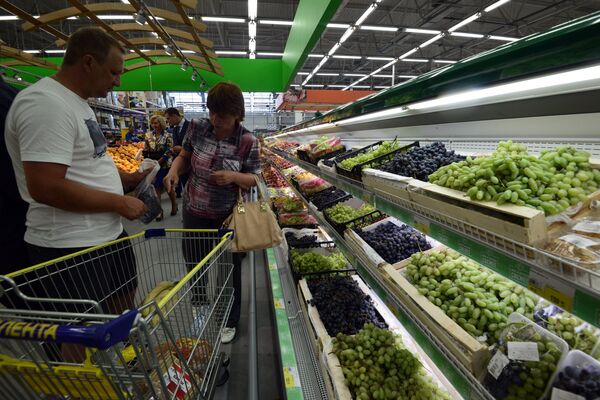MOSCOW, August 8 (RIA Novosti) – The Association of European Businesses (AEB), an independent non-commercial association promoting business interests of European companies in Russia, asked the Russian and EU authorities Friday to protect investors from further restrictions.
“The AEB strongly requests EU and Russian authorities to protect foreign investors from both sides from any further retaliatory measures,” the organization said in a statement.
“We believe that any limitations of business activity will have a negative impact on future long-term EU-Russian relations,” the statement reads.
The AEB represents more than 600 companies from the EU and the European Free Trade Area (EFTA), which are engaged in business activities in Russia.
The United States, the European Union and ally countries have introduced several rounds of targeted sanctions against Russian companies and individuals since Crimea’s reunification with Russia in March.
Moscow stressed that Russia was never involved in the Ukrainian conflict and has repeatedly called the measures counterproductive, saying the sanctions could have a boomerang effect on European economies.
In a more recent incident in July, Washington introduced a so-called Sectoral Sanctions Identification List that specifically targeted the Russian economy’s most sensitive sectors, such as defense, energy and banking sectors.
The European Union soon followed US lead, imposing third-stage economic penalties that limited Russian state-owned banks' access to EU capital markets, outlawed arms trade with Moscow, established an export ban for dual-use goods for military end-users and curtailed Russian access to sensitive technologies, particularly in the oil sector.
Russia retaliated with a blanket ban on food imports from the European Union, sending anxiety ripples across the EU market, notably in Lithuania, whose revenues from exports to Russia are equivalent to 2.5 percent of its GDP. The United States, Australia, Canada, and Norway are also on the Russian blacklist.
Moscow previously said it was ready to review the terms of its import restrictions if its Western partners showed a commitment to dialogue.




